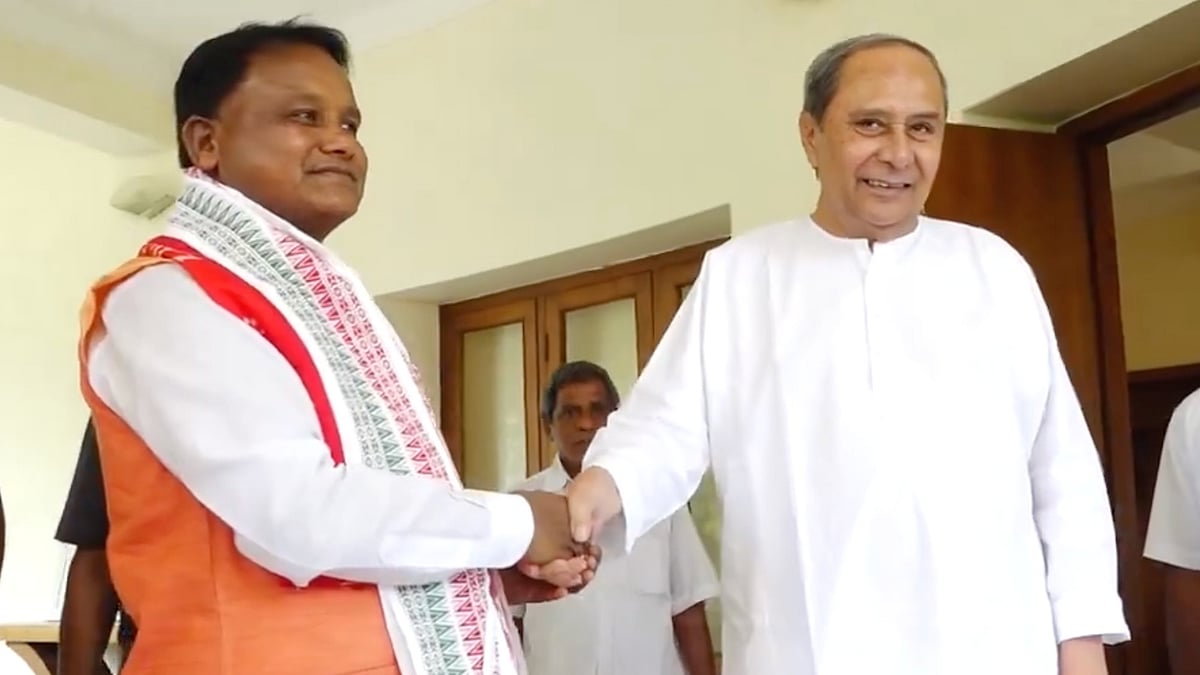Odisha Diary: Christians under attack in BJP regime
One of the most gruesome incidents was reported from Remuna in Balasore, the Lok Sabha constituency of former Union minister and BJP stalwart Pratap Sarangi

Christians are under attack in Odisha where religious intolerance seems to be growing after the installation of the state’s first BJP government in June last year.
One of the most gruesome incidents was reported from Remuna in Balasore, the Lok Sabha constituency of former Union minister and BJP stalwart Pratap Sarangi.
Brought to public notice though a viral video of two tribal women tied to a tree, the incident triggered public outrage. The police confirmed that the women, who are in their 40s, were also beaten up by the mob that accused them of trying to convert a local Hindu into Christianity.
Subash Mallick, inspector-in-charge (IIC) of Remuna police station said one of the women was a converted Christian while the other—a friend who apparently acted as the go-between in the foiled conversion bid—was a Hindu. The mob smeared the Christian woman’s face with the cake she had brought to Mukhura village on December 26, apparently to celebrate the conversion.
The video shows a jeering mob surrounding the tied-up women. A man dressed in white and sporting a vermillion tikka accuses them of destroying Hindu religion and culture and chants “Bharat Mata Ki Jai” and “Jai Sriram” which the mob echoes.
Police detained four youths as well as the two women and filed two separate cases under various sections of Bhartiya Nyaya Sanghita (BNS) pertaining to assault and atrocities against scheduled castes and tribes and the Odisha Freedom of Religions Act, 1967 which seeks to prevent unlawful conversions.
All detainees were released. Mallick said, “The youths apologised to the women and the women expressed regret for trying religious conversions. Even Gobind Singh… offered apologies for having agreed to change his faith.”
Communal tension erupted in Odisha soon after the state’s maiden BJP government led by chief minister Mohan Majhi was sworn in—following clashes on Bakr’Eid over a ‘suspicion of cow slaughter’, curfew was imposed in Balasore and internet services suspended.

Though Christians account for only 2.77 per cent of the state's total population, they appear to be more vulnerable than other groups. The state has a history of animosity between Christians and RSS-affiliated outfits like the Bajrang Dal and Vishva Hindu Parishad. No one can forget January 1999 when Australian missionary Graham Staines and his two minor sons were burnt alive by a mob led by self-styled Bajrang Dal activist Dara Singh at Manoharpur village in Keonjhar, the home district of chief minister Mohan Majhi who has strong RSS links.
In 2008, 30 Christians died and thousands were left homeless after a communal conflagration in Kandhamal, another tribal-dominated district. The pogrom was triggered by the murder of VHP leader Swami Laxmananand Saraswati and prompted then chief minister Naveen Patnaik to sever ties with the saffron party ahead of the 2009 elections.
Now sitting in opposition, Patnaik’s Biju Janata Dal (BJD) watches the attacks with growing concern. In November 2024, Christians were attacked in Gajapati district bordering Andhra Pradesh; in the first week of December, in Rayagada and Jajpur, where a church was allegedly vandalised. A few days later, in Balipatna, a mob allegedly forced a young Christian to trample on a copy of the Bible and chant “Jai Sriram”.
The police have confirmed and acted, it would appear, only in the Balasore case so far. Former BJD MLA Latika Pradhan slammed the BJP government for failing to protect vulnerable groups: “Law and order in the state has collapsed. Neither women nor minorities are safe. It’s shameful...”
State Congress spokesperson Amiya Pandab expressed shock at the rise of such incidents in a state whose chief minister is from the tribal community and which has given the country its first tribal president.
Machine errors or machinations?
The Naveen Patnaik-led Biju Janata Dal (BJD) has raised serious concerns over ‘unexplainable variances’ in vote counts between the simultaneous Lok Sabha and assembly elections held in Odisha between May and June 2024. The BJD lost to the BJP after 24 years of uninterrupted rule, paving the way for the formation of state’s first BJP government.
On 23 December, the party submitted a memorandum to the Election Commission of India (ECI) highlighting significant disparities between the polling day figures and the final EVM count, with variations ranging from 15 per cent to 30 per cent—a huge jump from the historical variance of 0.5 per cent to 1.5 per cent in previous elections.
‘These variations raise questions about the integrity of the whole process,’ stated the memorandum, signed by BJD coordination committee chairman Debi Prasad Mishra, seven Rajya Sabha members and senior party leader Amar Patnaik.
The BJD cited specific examples, including the Dhenkanal constituency, where the Lok Sabha votes exceeded the combined assembly segment votes by 4,056. The memorandum pointed out discrepancies between Form 17 (polling day data shared with agents on voting day) and Form 20 (final counting day figures), noting that such inconsistencies were unprecedented in Odisha’s history of simultaneous elections in 2004, 2009, 2014 and 2019.
Addressing media-persons in Bhubaneswar on 26 December, Patnaik backed the demand for a return to the paper ballot system. This was the first instance of the BJD chief joining the opposition chorus on the issue.
Follow us on: Facebook, Twitter, Google News, Instagram
Join our official telegram channel (@nationalherald) and stay updated with the latest headlines
